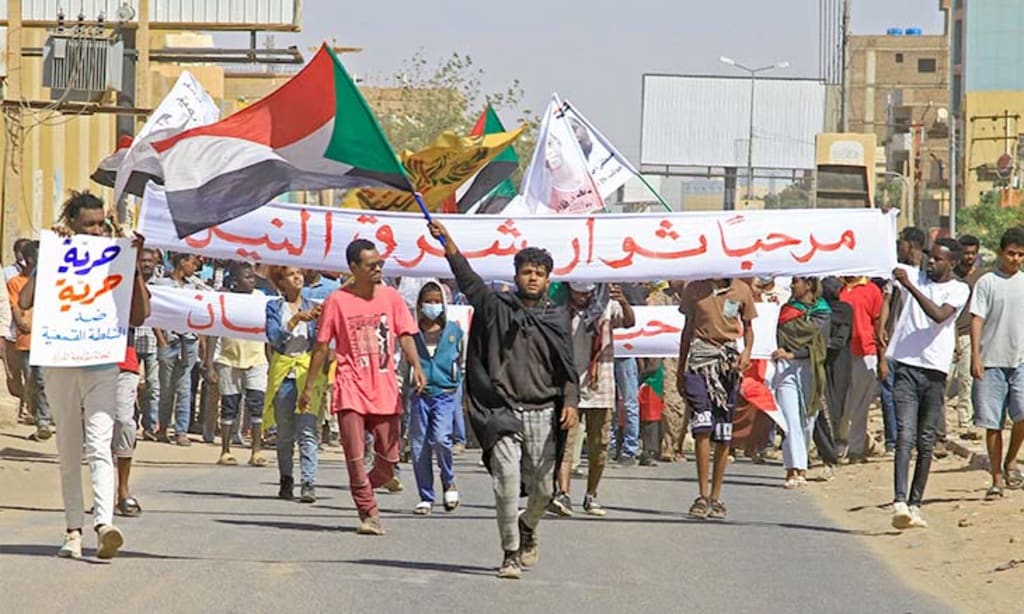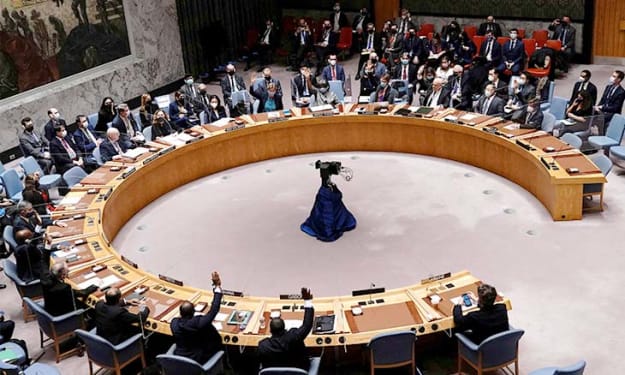
Political science specialists define foreign policy as the sum of the official activities of the state with the various actors of the international system, and it is prepared according to a well-planned and targeted program, and it is made within the state and is considered a reflection of its internal policy. Making foreign policy requires understanding and careful study of the various factors and determinants that directly or indirectly affect the making of this policy. The first thing that confronts the decision maker is the extent to which he is properly aware of the situation he is dealing with, for example, how to deal with the international crisis emerging today from the Russian invasion of Ukraine, and to conjure up a group of alternatives regarding this situation, one of which is chosen based on the availability of certain information related to it, and then he makes the decision that is supposed to It brings maximum benefits and minimum possible losses to the country. The process of making, taking and implementing decisions on the country’s foreign policy goes through several stages, starting with the preparatory stage, which includes defining the main criterion and determining the variables related to the subject, measuring these variables with the main criterion, then choosing the goal and drawing up a strategy to achieve it, after which comes the decision-making stage by choosing one of the alternatives and translating it into The practical reality through concrete actions, activities and programs of action, whether this decision is in the context of action or reaction, and finally comes the stage of reactions, evaluation and drawing conclusions. The official bodies in the state, as institutions and not individuals, are ultimately responsible for making the country's foreign policy. This scientific definition of foreign policy, which is available in all political science outlets, books and Sphere websites, if we drop it on our miserable reality, literally, we will be shocked by the fact that our current transitional period is still absent from the strategic vision for our foreign policy, and even our movements are characterized in this important aspect. The fateful is randomness and the absence of priorities, and it may come in response to interests that may contradict the interests of the nation. In this, it is in complete contradiction with the goals of the December Revolution, which came at the forefront of its priorities, to reconsider the entirety of our foreign policy for the benefit of the homeland and its people, and in accordance with internationally agreed principles.
The fact that Sudan is suffocating with the fires of a national crisis, deep and suffocating, and that all possibilities are pregnant with the reasons for its fragmentation
and collapse. This is a clear truth that is known from far and near, and revealed by a group of features that blood both the heart and the eye. The bloodshed multiplies and increases in intensity by dragging the country into an ill-considered foreign policy that travels on bumpy and highly dangerous roads, especially as it relied on the game of “smartness” and “passiveness” in dealing with contradictory axes in a world where each axis awaits to attack the other. Hurry up throwing the country into destruction.
He is oblivious to those who think that the suffocating Sudanese crisis does not intersect or touch the hotbeds of international and regional conflicts with its multiple axes and challenges. Suffice it to say that the main headlines of these challenges are self-explanatory, chief among them:
As we have written many times before, today we live in a world that does not accept isolation and isolation. A world governed by the inextricable laws of globalization, which provide fertile soil for the manifestation of the phenomenon of interactions and overlaps between the components of this world, as an objective and inevitable phenomenon, and we in Sudan have nothing but positive interaction with the other components of the world, and harnessing this interaction for the interest of the country, away from the delusions and slanders that Time has passed, and at the same time, away from any slips that would overstate our national sovereignty. It is true that patriotism is a value that is not called for overnight, but rather is implanted with education and setting an example, as the individual senses in the various institutions of the state and society as justice and equality, but it also comes as an expression of a conscious awareness of the red lines of the homeland that we do not allow anyone to cross. From another angle, national sovereignty is not a sufficiency imposed by one group over another, but rather created by the coexisting people belonging to the specific homeland, and they derive it from their unity and understanding of their problems and their willingness to resolve them by mutual consent, and unfortunately this is not available to us, until now at least. It is true, that we, wherever we are, will not accept any attack on our national sovereignty regardless of who rules Sudan, but at the same time we say that the attack on national sovereignty does not come from outside the borders only, but also comes from within the country when the ruler’s policies lead to neglect it. The abandonment of national sovereignty is only an inevitable result of the policies of the axes and the panting here and there in our ill-considered and institutionally unplanned foreign policy, and as a result of making concession after waiver of the components of national sovereignty, in order to protect the ruler or his own interest. It is true, that we, wherever we are, will not accept any attack on our national sovereignty regardless of who rules Sudan, but at the same time we say that the attack on national sovereignty does not come from outside the borders only, but also comes from within the country when the ruler’s policies lead to neglect it. The abandonment of national sovereignty is only an inevitable result of the policies of the axes and the panting here and there in our ill-considered and institutionally unplanned foreign policy, and as a result of making concession after waiver of the components of national sovereignty, in order to protect the ruler or his own interest. It is true, that we, wherever we are, will not accept any attack on our national sovereignty regardless of who rules Sudan, but at the same time we say that the attack on national sovereignty does not come from outside the borders only, but also comes from within the country when the ruler’s policies lead to neglect it. The abandonment of national sovereignty is only an inevitable result of the policies of the axes and the panting here and there in our ill-considered and institutionally unplanned foreign policy, and as a result of making concession after waiver of the components of national sovereignty, in order to protect the ruler or his own interest.
Sudan has been greatly affected, to the point of deadly isolation, due to the imbalances in its foreign policy, except as a result of ideological descent, or falling into the traps of axes conflicts, or opportunistic policies akin to brokering, or policies that put the private interest above the interest of the country. And all of this should be completely silenced.





Comments
There are no comments for this story
Be the first to respond and start the conversation.